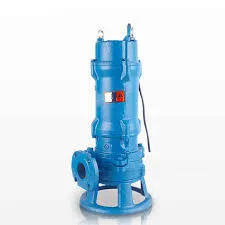English
- Afrikaans
- Albanian
- Amharic
- Arabic
- Armenian
- Azerbaijani
- Basque
- Belarusian
- Bengali
- Bosnian
- Bulgarian
- Catalan
- Cebuano
- Corsican
- Croatian
- Czech
- Danish
- Dutch
- English
- Esperanto
- Estonian
- Finnish
- French
- Frisian
- Galician
- Georgian
- German
- Greek
- Gujarati
- Haitian Creole
- hausa
- hawaiian
- Hebrew
- Hindi
- Miao
- Hungarian
- Icelandic
- igbo
- Indonesian
- irish
- Italian
- Japanese
- Javanese
- Kannada
- kazakh
- Khmer
- Rwandese
- Korean
- Kurdish
- Kyrgyz
- Lao
- Latin
- Latvian
- Lithuanian
- Luxembourgish
- Macedonian
- Malgashi
- Malay
- Malayalam
- Maltese
- Maori
- Marathi
- Mongolian
- Myanmar
- Nepali
- Norwegian
- Norwegian
- Occitan
- Pashto
- Persian
- Polish
- Portuguese
- Punjabi
- Romanian
- Russian
- Samoan
- Scottish Gaelic
- Serbian
- Sesotho
- Shona
- Sindhi
- Sinhala
- Slovak
- Slovenian
- Somali
- Spanish
- Sundanese
- Swahili
- Swedish
- Tagalog
- Tajik
- Tamil
- Tatar
- Telugu
- Thai
- Turkish
- Turkmen
- Ukrainian
- Urdu
- Uighur
- Uzbek
- Vietnamese
- Welsh
- Bantu
- Yiddish
- Yoruba
- Zulu
Telephone: +86 13120555503
Email: frank@cypump.com
Nov . 20, 2024 18:54 Back to list
sewer injection pump
Understanding Sewer Injection Pumps
Sewer injection pumps play a vital role in modern wastewater management systems. These powerful devices are designed to handle the complexities of sewage transport, ensuring that waste is pumped efficiently from lower elevations to treatment facilities. Their importance cannot be overstated, especially in urban areas where maintaining clean and functional sewer systems is crucial for public health and environmental protection.
At their core, sewer injection pumps work by creating pressure that forces sewage and wastewater through pipes and into the sewer system. They are commonly employed in situations where gravity alone cannot move the waste effectively, such as in low-lying areas or where the sewage needs to be lifted to a higher elevation. These pumps help prevent potential flooding and backups that can lead to unsanitary conditions and damage to property.
One of the key components of sewer injection pumps is the impeller, which is responsible for moving the fluid. The design of the impeller is crucial, as it needs to be robust enough to handle solid waste materials commonly found in sewage. Blockages can occur when larger items, like rags or plastic, enter the system, which is why many sewer injection pumps are equipped with cutting mechanisms to shred these materials before pumping.
sewer injection pump

When selecting a sewer injection pump, several factors must be considered
. The pump’s capacity is paramount—it must be able to handle the expected volume of wastewater. Additionally, the pump must be compatible with the specific wastewater characteristics, including solids content and corrosive properties of the sewage. Submersible and above-ground pumps are the two primary types, each with their unique advantages. Submersible pumps, which operate underwater, can save space and reduce noise pollution, while above-ground pumps are easier to maintain and service.Regular maintenance of sewer injection pumps is essential for ensuring their longevity and efficiency. Routine checks on the motor, impeller, and seals can prevent unexpected failures and costly repairs. In addition, proper installation is crucial; it is vital to adhere to local regulations and standards to guarantee safety and compliance.
In recent years, technological advancements have led to the development of smart sewer injection pumps equipped with monitoring systems. These systems can provide real-time data about pump performance, allowing for timely interventions and reducing the risk of malfunction. Advanced features might include alerts for unusual vibrations, abnormal flow rates, or impending failures.
In conclusion, sewer injection pumps are indispensable in the effective management of wastewater. By understanding their functionality and importance, stakeholders can ensure a reliable sewage system that safeguards public health and protects the environment. Investing in quality pumps and embracing new technologies can lead to more efficient and sustainable wastewater management practices.
-
High-Performance Air Pumps for Sand & Gravel | Efficient Transport
NewsAug.03,2025
-
ISG Series Vertical Pipeline Pump - Chi Yuan Pumps Co., LTD.|Energy Efficiency, Corrosion Resistance
NewsAug.03,2025
-
ISG Series Pipeline Pump - Chi Yuan Pumps | Energy Efficiency&Compact Design
NewsAug.03,2025
-
ISG Series Vertical Pipeline Pump - Chi Yuan Pumps Co., LTD.|High Efficiency, Low Noise, Durable
NewsAug.02,2025
-
ISG Series Vertical Pipeline Pump - Chi Yuan Pumps | High Efficiency, Low Noise
NewsAug.02,2025
-
ISG Series Vertical Pipeline Pump- Chi Yuan Pumps Co., LTD.|High Efficiency&Compact Design
NewsAug.02,2025










